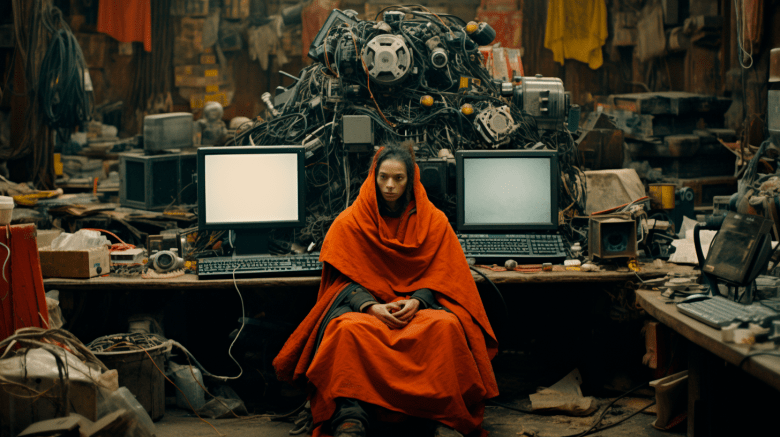Hey folks, Kris Krug here, and today we’re diving into a conversation that’s close to my heart: AI’s true threats. It’s not just about the existential risks that are often touted; we need to look at the underlying issues of Corporate Control, Centralization of Power, and Cultural Adaptation.
Corporate Control and Centralization of Power
We live in a world where AI is rapidly advancing, and with that comes the danger of power concentrating in the hands of a few elite corporations. This isn’t just theoretical; it’s happening right now. The monopolization of AI technology threatens to stifle innovation, reduce diversity of thought, and place immense power into a centralized system.
What does this mean for us? It’s about losing control over technology that has the potential to shape our future. When power is centralized, it’s easier to misuse, and it’s harder for independent voices to be heard. We need to foster open-source projects, encourage collaboration, and break down the barriers that prevent decentralized control of AI. This is about creating a more democratic landscape where AI serves all of humanity, not just the privileged few.

Cultural Adaptation
Now, let’s talk about something equally vital: Cultural Adaptation. The rapid changes in AI technology have the potential to destabilize our traditional institutions and societal norms. This isn’t just about losing jobs to automation; it’s about the very fabric of our society being reshaped at a pace we might not be ready for.
How do we adapt? We need to develop educational initiatives, public dialogues, and cultural strategies that allow us to grow with these technological shifts. It’s not about resisting change but embracing it, understanding it, and making it work for us. We need to create spaces for curiosity, creativity, and dialogue that allow us to navigate the complexities of this new technological landscape.

Conclusion
The existential threats of AI are real, but they’re not the whole story. The true dangers lie in Corporate Control, Centralization of Power, and our ability to culturally adapt to rapid changes. These are the challenges we must face head-on, with open minds and compassionate hearts.
Let’s work together to ensure that AI’s future reflects the best of humanity, creating a landscape that’s democratic, diverse, and adaptable. It’s about guiding AI towards loving, peaceful, and benevolent outcomes, not just fearing its potential dangers.

Peace, love, and a brighter future,
Kris Krug
So, I invite you to listen closely. The voice you hear may be a clone, but the message it carries is urgently, unequivocally human.
Discover more from Kris Krüg | Generative AI Tools & Techniques
Subscribe to get the latest posts sent to your email.

You must be logged in to post a comment.